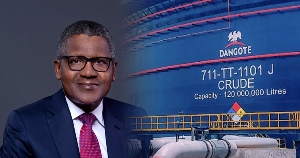Nigeria’s fuel market is heating up again, as at least four major downstream marketers have imported fresh cargoes of petrol and diesel into the country, a move that could force a new price adjustment across filling stations and rival supplies from the Dangote Refinery.
This development comes just days after a new report revealed a sharp decline in Nigeria’s petrol imports since the Dangote plant began supplying domestic fuel.
The resurgence of private importers suggests growing competition that may benefit consumers and pressure existing pricing frameworks.
Fresh tankers dock across Nigerian ports
Verified tanker movement data between October 1 and 9, 2025, shows active discharges of Premium Motor Spirit (PMS) and Automotive Gas Oil (AGO) across Lagos, Calabar, and Warri.
According to a report by PetroleumPriceNG, at the Lagos ports, the STI Mystery vessel discharged 30,042 metric tonnes of petrol for AITEO, while the OIN M delivered 19,000 metric tonnes for NIPCO. In IBAFON, the ST Lady Meenah arrived with 25,000 metric tonnes of diesel, awaiting discharge.
In Calabar, African Marvel completed the offloading of 20,000 metric tonnes of petrol at INTELS depot, while in Warri, two vessels — Mosunmola and Onyx Orca, each brought in 5,000 metric tonnes of petrol for Taurus Energy.
The coordinated deliveries underscore renewed private-sector participation in fuel supply, with depots across the country now replenishing stocks ahead of expected retail adjustments.
Market Impact: Dangote faces fresh competition
Industry sources suggest the fresh import wave could intensify rivalry with the Dangote Refinery, which has been gradually expanding its footprint in domestic fuel distribution since mid-2025.
Until recently, Dangote was seen as the dominant supplier, benefiting from reduced import competition as Nigeria’s dependence on foreign refined products sharply declined.
However, with multiple vessels now berthing simultaneously, analysts believe marketers are reasserting control to capture regional supply gaps and influence pricing trends.
A Lagos-based downstream analyst said, “The arrival of multiple tankers indicates that private players are not backing down. If sustained, this could stabilise supplies and trigger a modest decline in pump prices.”
A possible price shift on the horizon
If depot inventories continue to rise, the increased supply could force a drop in retail prices in the coming weeks, especially as marketers compete with Dangote’s expanding output.
This aligns with recent trends showing reduced petrol import volumes, suggesting that local and regional market dynamics are shifting rapidly.
While Dangote’s refinery remains the central player in Nigeria’s evolving energy landscape, the re-entry of major importers could restore competitive balance, and perhaps, finally, bring long-awaited relief to motorists.
Business News of Thursday, 9 October 2025
Source: www.legit.ng













